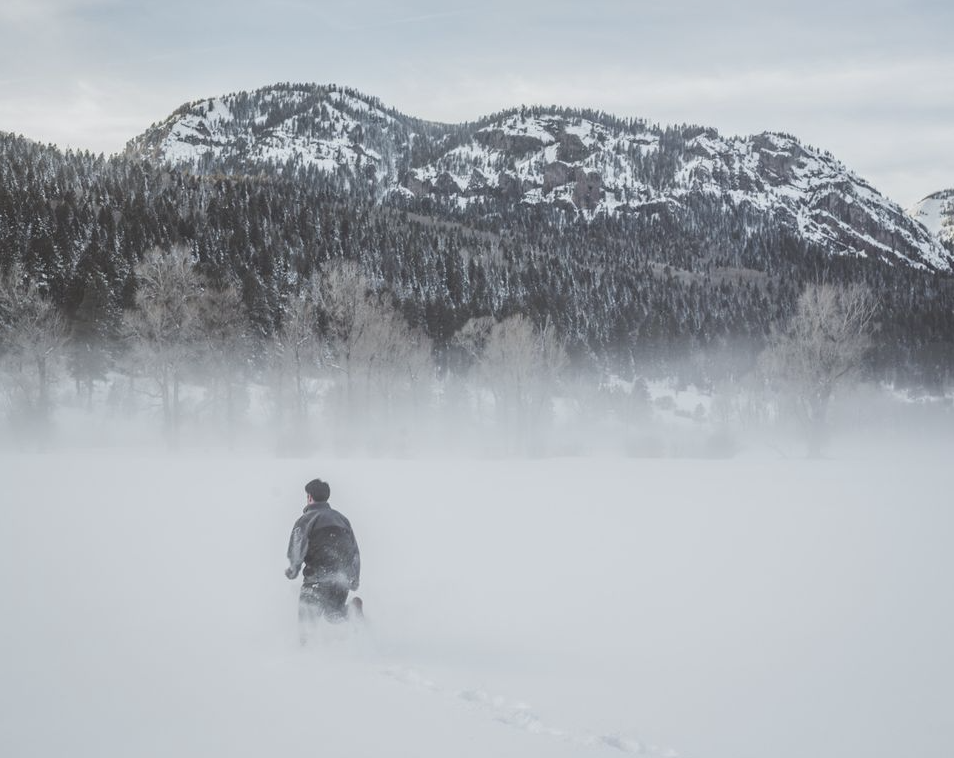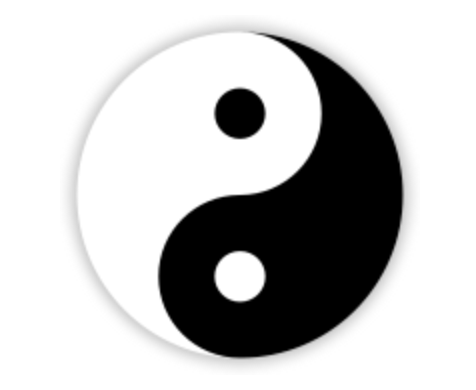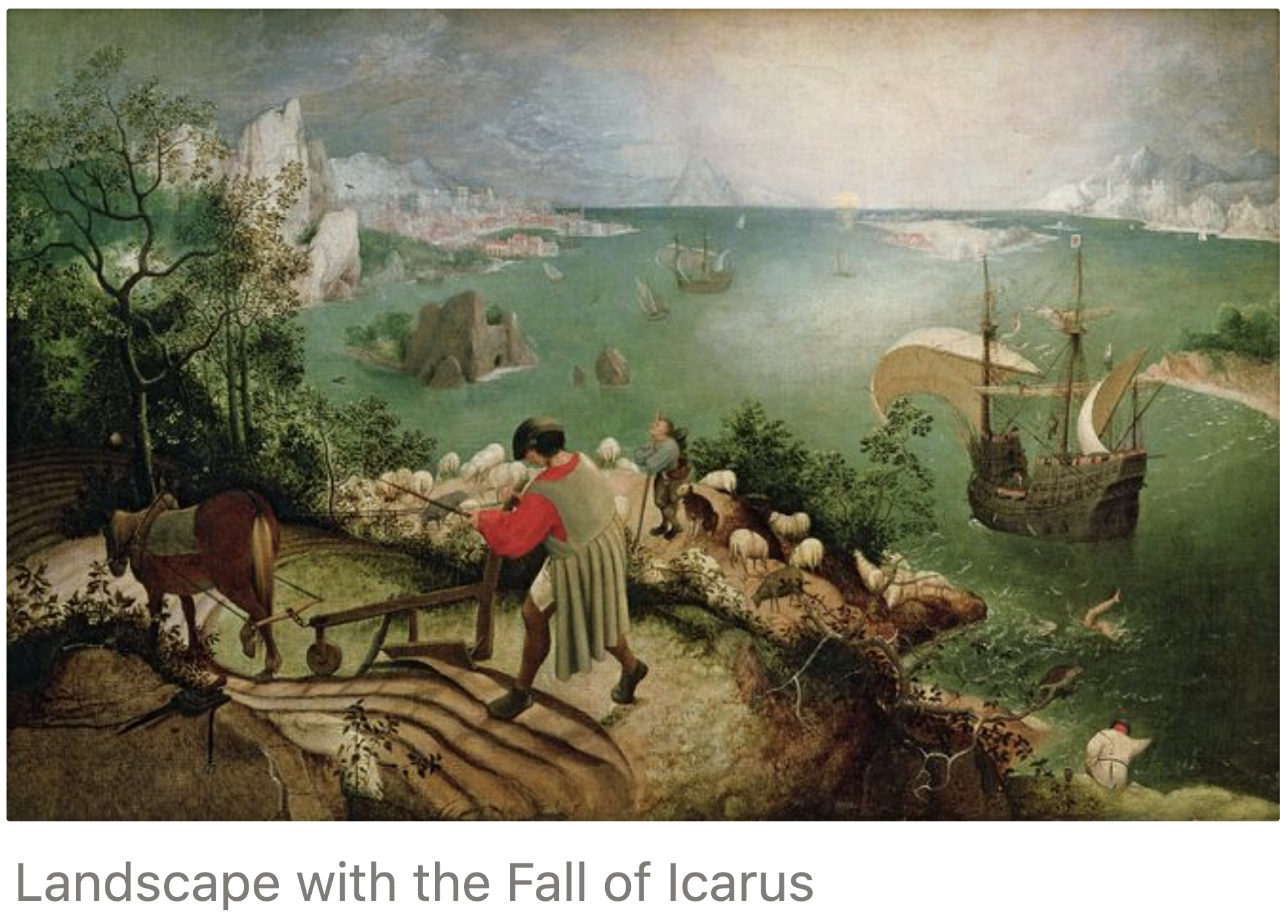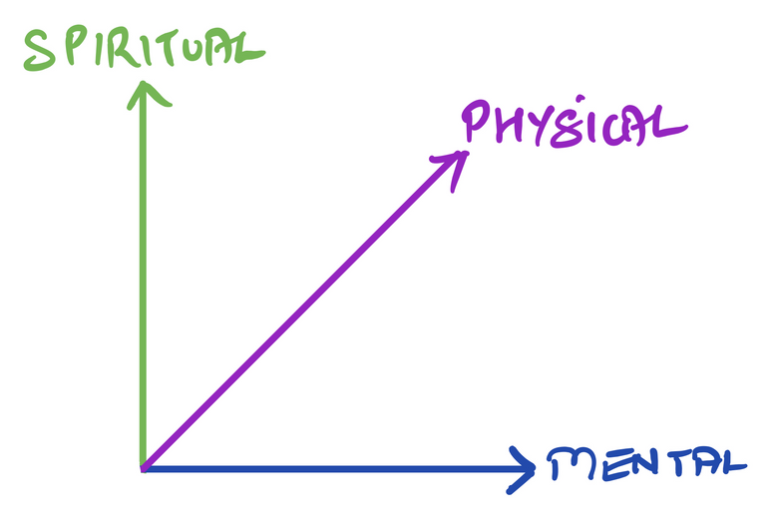The Annual Review
Letter To The Shareholders 2021
Hi friends,
I’ve been doing my annual reviews since 2019. In 2020, I started with a ‘Letter to the Shareholders’. Inspired by Bezos’s and Buffett’s letters, this template helps me objectively view the year gone by. To report to my stakeholders the progress of the year, I have to be truthful, precise, and show my growth. This is hard; yet, last week, I completed my 2021 Letter to the Shareholders.
This week, as I share my 2021 letter, I’m content not only because of what happened in 2021, but more so because I’ve documented it. 2021: A unique year in my life’s journey. I’m glad, yet driven; grateful, yet proud. Being accountable, taking on responsibility, delivering on it, while recognizing that all of it is work-in-progress is gratifying.
What’s most enthralling about the letter to me is that it is indeed 100% authentic. It comes from a place of deep experience about the things I was exposed to, and it helps me appreciate the deep life I lived in the past year.
As I share this with you, I thank you for taking the time to read this. You can find the letter here. (I have also posted it below.)
Letter to the Shareholders 2021
💡 Here is my update letter for Jan - Apr 2021.
To Investors:
First off, thank you. In many ways, each of you has been an important part of my journey. You’ve inspired me and supported my growth over the years. For this, I thank you.
As begin to write about 2021, I revisit my 2020 letter, which, above all, gives me a panoramic view of my growth. It’s uplifting to read, but also daunting because it begs the natural question: Did I grow more in 2021 than in 2020?
So, this letter is, once again, a progress report of where I was on Jan 1, 2021, and where I am, in 2022.
Onto the letter:
2021 was a continual blizzard. It was a year of stress, negotiations, and dynamic problems at work. It was a year in which I practiced resolving deep conflict, developed a capacity for emotional maturity, and formed the habit of thinking clearly. It was also a year in which I almost lost loved ones, let go of panicky self-improvement, and realized that the things that make me most human, are not particularly unique. And it was a time when I understood how life just happens.
“It was the best of times, it was the worst of times...”
In summary, 2021 was setting forth in a snowstorm, being surprised with snow showers and avalanches, and squinting into the blurry vastness of what lies beyond.

What started as a well-structured year was knocked off its planned course with this continual blizzard. Yet, I am proud of what I accomplished in 2021, as my north star guided me, although, to a different ending.
“You can't go back and change the beginning, but you can start where you are and change the ending.”
I’ll bucket 2021 into three things:
- The Yin-Yang of Work,
- Self-Exploration, and
- The 3 Health Axes.
Start with the first.
☯️ The Yin-Yang of Work
While I won’t talk about the specifics of my work, I’ll take you through what I learned, how I grew, and why it matters to me.
I call this bucket the ‘yin-yang’ of work because, really, work for me was navigating a set of complementary, opposing forces, the very definition of yin-yang. From Wikipedia:
Yin Yang is a concept that describes how obviously opposite or contrary forces may actually be complementary, interconnected, and interdependent in the natural world, and how they may give rise to each other as they interrelate to one another.

For me, these forces were chaos and order. Take a look at the image above. Say, chaos is the black part, and order white. But even within the black part (chaos), there is a white circle (order), and within the white part (order) a black circle (chaos).
Work felt like yinning and yanning. It had its own tempo, its own cadence, its own blurry boundaries, and its own timing of jumping between chaos and order. I had to navigate this: Within chaos, I found order, and within order, chaos.
Well into 2022, I continue to work on the one big project at work which has dominated my being. To the point that nothing else matters more than the successful completion of this project. Let’s have a look at what I learned.
🖼️ To Paint on a Blank Canvas
Have a look at this artwork. Observe the intricate details and fine nuances of this work.

Now, imagine if you were tasked to paint something afresh on a blank canvas. You have no understanding of what you’re suppose to paint, but you have to paint something. Suddenly, painting something becomes 10x harder (assuming you’re not Picasso).
My situation at work was similar to an “artist” before a blank canvas. A blank canvas represents messy, undefined problems that lack a solution. The “artist” represents you. How then do you deal with a paintbrush, a few colors, and a blank canvas?
You dance. You think. You improvise.
In hindsight, problems at work forced me to do all three. As I painted with a flair to find a “solution” to the blank canvas, a pattern emerged. I learned that solutions in real-world problems are revelations from within that no playbook can prescribe. Solutions abound. There is no right solution. Then, what matters is the ability to see the endpoint of each stroke, each flick, each movement. For once you’ve painted on the canvas, you cannot change it. You have to improvise.
Such was my experience with dynamic, evolving, complex problems at work, something that taught me how to think like an artist before a blank canvas.
🎨 Art is Articulate
To solve messy problems, frame them.
In 2021, I instantiated ‘communication skills’ and observed why they mattered. Communication skills help map out messy problems and precisely define their constraints. Once you clearly have a problem mapped out with its surround-sound, you develop context. As you develop context and fit the problem in it, you weave a complex tapestry. You’re then able to see the problem in its grandeur and with its exquisite details. Which enables you to zoom out and zoom in; at the right focal distance, the solution clicks.
Communication helps in finding the right focal point.
I recall writing memos, creating flowcharts, drawing visualizations, all of which helped me map out problems, define constraints, and precisely articulate what needed solving. That is how articulation helped me.
I also observed how, in negotiations, the correct framing of a thing helps you persuade the other party. This happens because, when bandwidth is finite and stakes are high, anything that helps you explain a thing simply, clearly, effectively, wins.
Art is articulate.
👀 The Scout Mindset
This third lesson is a mini-guide in thinking from first principles. Looking back, 2021 was a lesson in human psychology, decision-making, and reasoning. I learned that our default mode of reasoning is motivated reasoning, but that it is imperative to understand and fix this. Or else, errors compound, and the results are catastrophic.
From Wait But Why’s post:
If you want to change someone’s behavior, easier than altering their motivation or changing their actual environment is altering their perception of reality. This third way of manipulating a human is a shortcut—a cheat—made possible by one of human evolution’s best tricks:
Delusion.
Delusion is what happens when our reason bouncer fails as the gatekeeper to our beliefs—when our imagination is stronger than our judgment. It might be the most universal human quality. And it adds a whole other component to the environment portion of our behavior equation.
While the post goes into greater detail on our “reason bouncer” and funny stick figures, what matters here is the realization of how delusion leads to incorrect decision-making. I learned that since we’re naturally emotional, our emotions drive our strategy. But this is flawed. Emotions skew our reasoning and drive us to construct beliefs which may be rooted in falsehood.
When we’re emotional and we develop a strategy, we have a ‘soldier’s mindset’. From Julia Galef:
By default, a lot of the time we humans are in what I call “soldier mindset,” in which our motivation is to defend our beliefs against any evidence or arguments that might threaten them. Rationalization, motivated reasoning, wishful thinking: these are all facets of what I’m calling a soldier mindset.
But when we’re not emotional and we develop a strategy, we have the scout mindset. Again, from Julia Galef:
Unlike the soldier, a scout's goal isn't to defend one side over the other. It's to go out, survey the territory, and come back with as accurate a map as possible. Regardless of what they hope to be the case, above all, the scout wants to know what's actually true.
As an aside, I recommend reading this book: The Scout Mindset: Why Some People See Things Clearly and Others Don't.
Developing a scout mindset, however, is hard. I recall having many moments of aggression, but aggression is nothing but emotion. The key is be cool within and aggressive without; it’s not to be aggressive within and without. For aggression yields a soldier’s mindset, while calm yields a scout mindset.
And this mindset is important because it allows you to survey messy problems and accurately forecast their prognosis. Without knowledge of this prognosis, though, real-time decisions will have cascading negative third-order effects. Which is how colossal mistakes are made: An inability to project far into the future.
That said, at the moment, I don’t think it’s entirely possible to get rid of the soldier’s mindset. Yet, with awareness and constant effort, I am confident of increasing my scout-quotient.
💭 Self-Exploration
2021 was a year of deep self-exploration, as work stress shined light in the dark basement of my personality. I must admit, though, the basement wasn’t as dreadful. More holistically, 2021 helped me explore a few important themes in life, particularly:
- Life happens,
- Don’t mistake sunk-cost for consistency,
- Fun trumps all,
- Entertainment has strong economic value,
- Plans and templates fail, and
- Higher-order needs drive us.
🧬 Life happens
I recall April 2021: India suffered one of the worst COVID surges, with the Delta variant wreaking havoc. This was the month when I realized how black swan events often shape our journeys when we expect them least. Which is when I learned: “Life happens”. To be prepared for these times, then, is important.
But preparation is a funny journey.
Knowledge-acquisition has long periods of stable to zero output, with a sudden spike in extraordinary output. Take surprise tests in middle-school, when suddenly, your knowledge acquired over months comes to your rescue in one day. Preparation for life is similar. Moments of crises test your innate knowledge: The delta spike, the 2008 crisis, the 2020 momentary stock-market bust. If you were well-prepared in these events, you would make extraordinary gains in a short span of time.
For instance, when my loved ones got COVID, I found myself going back to the COVID Database I created in 2020. In essence, then, my constant reading and research of COVID equipped me to understand COVID and help meaningfully.
〽️ Don’t mistake sunk-cost for consistency
I wrote 24 newsletter posts and published 1 video, which was a sharp drop from 2020 when I wrote 118 pieces and published 54 videos. Yet, this drop taught me something valuable: Do not mistake sunk cost for consistency.
Just because I am consistent at one thing does not mean I can’t change that thing.
When ‘life happened’ in April 2021, my frequency of publishing videos suddenly dropped. Which also had an impact on my podcast Half A Thought (I didn’t record any episode in 2021). But as I reflect on why this happened, I think it’s because somewhere, I decided to delineate between ‘consistency’ and falling victim to ‘sunk-cost’.
Yes, in 2020, I put in many hours recording podcasts, making videos, and writing weekly. But this “sunk-cost” cannot force me to stay on an unsustainable path. Consider that doing all three activities on top of work and life is inherently stressful.
So, I was brutally honest to myself and resolved to course-correct, prioritizing what life threw at me and balancing my other pursuits. (Note, though, this is not the same as being inconsistent, because I actively chose to prioritize.)
Consistency is a meta-skill which is applicable anywhere. Consistency’s iatrogenic is incurring sunk-cost, but sunk-cost cannot dictate what you’re consistent at. The trick is — in classic A16Z terms — to have ‘strong convictions, weakly held’. When being consistent at one thing stops giving meaning to your life, change it. (Of course, this changes from one context to another, so don’t consider this as a blanket rule).
💃 Fun trumps all
Somewhere, I embraced fun above all. When making videos got boring, I paused. When recording podcasts got monotonous, I paused. When writing weekly got stressful, I paused. When running got boring, I paused. In all these examples, I paused when my fun-quotient dipped. After all, what’s the point of doing anything if you’re not having fun with it? 2021 taught me to develop a particular ‘fun-filter’, to choose what matters, and what is worth doing.
If I’m having fun doing it, it’s probably worth it to continue.
📺 Entertainment has strong economic value
I must admit I did use consume a good quantity of entertainment in 2021. But I must also admit I do not feel an iota of guilt or regret. This is because I understood the productive value of entertainment: As work got stressful and life became difficult, entertainment became a meaningful outlet for me. I came to terms with the fact that watching TV for 45 minutes a day or so is not “unproductive”. Rather, it helps to switch off the mind and refresh for an even more energizing tomorrow. To name a few TV shows which I watched (and recommend):
- The Man in the High Castle (Prime)
- Game of Thrones (HBO)
- Foundation (AppleTV+)
- Invasion (AppleTV+)
- The White Lotus (HBO)
- Physical (AppleTV+)
- The Shrink Next Door (AppleTV+)
- The Morning Show (AppleTV+)
- Ted Lasso (AppleTV+)
- Better Call Saul
- The Office (S1 - S5)
📒 Plans and templates fail
Surprisingly, as life happened and I was swamped with all things work, my productivity stack collapsed. My task-management and note-taking systems were simply unable to take on my workload. Yet, this taught me something fundamental.
In times of crises, you revert to your most-natural state.
One of the evergreen questions in my mind is always one of optimization: Which is the best note-taking app, the best task-management system, the best productivity tool?
I now have the answer: Whatever fits you.
So, as I struggled with things to do and my ever-expanding to-do list, the one system that stuck with me all throughout was Roam Research, a tool I’ve been an ardent fan of. Perhaps I have a graph mind, or we all do... But in summary, when my plans and templates failed, Roam helped me navigate my work’s and life’s complex maze. In other words, Roam was my most-natural state. (I’ve made a few videos capturing my Roam workflow here, here, here, here, here, and here.)
🪡 Higher-order needs drive us
I started 2021 with clear goals, but soon enough, my goals metamorphosed into intangible, fluid, dynamic pursuits. This shift was partly driven by externalities but also driven by my hard left turns, as I embraced my original callings and higher-order needs.
I’ve learned that what we choose to do is only an outcome of something deep-seated which is unrecognizable. For examples, the need to accumulate wealth may arise out of a deep insecurity about money, the need to attract a partner may arise out of sheer loneliness, the need to do well in life may arise out of a fear of career failure.
The recognition of these deep-seated needs will allow us to make the truly right choices.
If you recognize that all you need is to combat loneliness, maybe you don’t need to pursue what you’re desperately trying to pursue. Amidst the blizzard of the year, somewhere, I introspected and understood what truly drove me as an individual. I began to over-index on that and saw great returns in the things I pursued, namely work, life, hobbies, and relationships.
🫀 The 3 Health Axes
An effective way to plot my health is across three key dimensions: mental, spiritual, and physical. At any time, my spatial position vis-a-vis these three axes helps me examine “how I’m doing”. Defining the axes is rather simple:
- Spiritually, the higher up you are, the more enlightened you are.
- Physically, the higher up you are, the fitter you are.
- Mentally, the higher up you are, the mentally-healthier you are.

🛐 Spiritual
Spiritually, 2021 was a transformative year as I metamorphosed my discontentment with things to acceptance and contentment, and my restlessness to patience. I was able to understand externally unfavorable situations and reinterpret them in a way that helped me address them. Looking back, I’m proud of getting through some of the most uncertain, unpredictable, and unstable times personally (given things at work). While the road to this transformation was by no means ‘easy’, the result was well worth the arduous journey.
🧠 Mental
With a normal-to-high dose of recurring entertainment, fulfilling conversations with a few close friends, and opportunities to serve meaningfully by helping friends and family, my mental health was rather well-settled. While there were intermittent moments of exhaustion, tiredness, or lack of clarity, I always reverted to my baseline level of normalcy.
🏋️♀️ Physical
Physically speaking, my key metrics were constant throughout the year, which is indeed growth for me. I took 2.5 million steps, ran 1158 miles, and spent 600K calories. I biked 62 miles, climbed 2100 flights of stairs, and worked out an average of 10 hours per month. Some indicators were as follows: Average VO2Max: 41.3mL/(kg*min), and Resting heart rate: 57.5bpm. During the latter half of the year, I resumed my intermittent fasting, skipping dinner (instead of breakfast), which was a radical shift in my schedule. I maintained my bodyweight at 140 lbs, my BMI at 21, and body-fat percentage between 19% - 22%. I worked out 4 to 5 times a week, and ran on most days.
🎻 The Crescendo
I will continue to fondly recall 2021, a year of hits and misses, volatility and uncertainty, stress and life, COVID and quarantine, work and friends, and more. I cannot give a quantitative scorecard, given the wide variance in my interpretation (and reinterpretation) of the year gone by. Yet, as I report my progress qualitatively, I’m proud of what I accomplished professionally and personally. While I’m confident I could’ve achieved more, given my constraints and multiple black swan events, that I pushed through speaks for itself.
In the year, I learned how to think for myself, explored my inner basement, meaningfully contributed to problems at hand, developed convictions through life experiences, learned how to be ridiculously honest with myself, and understood that what you work on matters more.
Throughout the year, I began to appreciate myself as more of a value-creator for myself and my stakeholders. That being said, I'd be lying if I didn't acknowledge that I wish the work was easier, more pleasant, and smooth. Temperamentally, I’m more of a people person, with the best of me coming out when I’m engaged in deep work. The year gave me few opportunities for this sweet spot, but I’m hoping for more in 2022.
I’m not sure what’s next in the remainder of 2022, but I'm looking forward to it. I would be remiss if I didn’t express how meaningful you — my mentors, friends, and most importantly, investors — have been in this story of 2021; I would love to have your feedback and guidance, as I continue to make further inroads into 2022, solving the one main gordian-knot problem at work.
Sincerely,
Abhinav